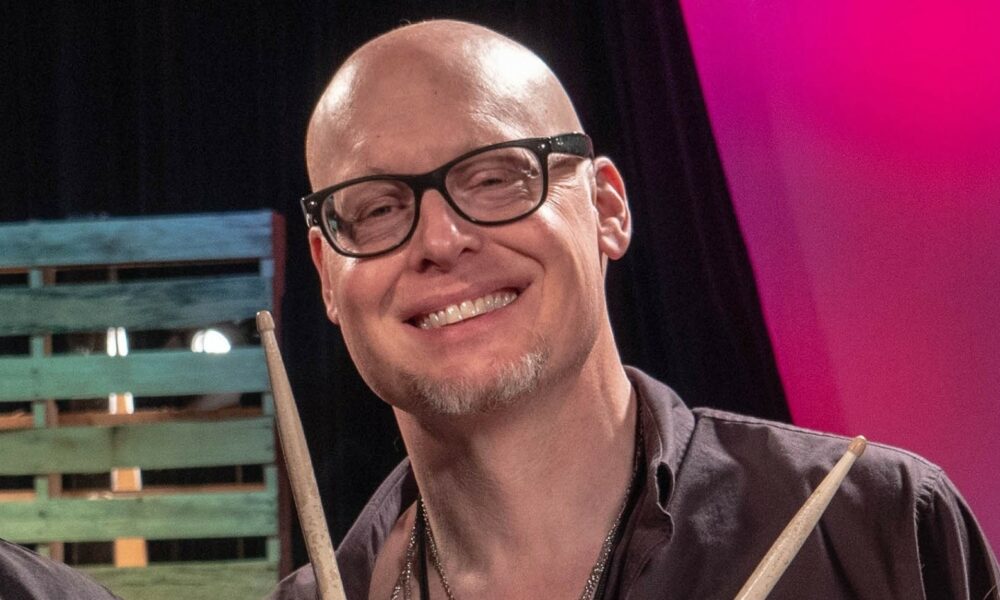

Today we’d like to introduce you to David Stanoch.
Hi David, it’s an honor to have you on the platform. Thanks for taking the time to share your story with us – to start maybe you can share some of your backstory with our readers?
I grew up in Minnetonka, Minnesota. My parents exposed my brother and I to a lot of opportunities in arts, sports and civic community activities to help us find ourselves. Music was a powerful resonator for us even though my parents were not musically skilled themselves. My brother and I had a suitcase record player that we shared listening to 45’s by The Beatles, The O’Jay’s, The Temptations, and the like, along with LP’s from their parents’ collection by such artists as Louis Armstrong, Pete Fountain and Jim Reeves.
I took up the guitar at the young age of 7, diligently studying the laws of music, and began drumming at age 10 after my guitar teacher suggested I pay more attention to the drums to improve my rhythm. I first played a drumset after watching the drummer in my brother’s grade band and I was hooked. Through my school years, my band directors, John Wegner, Peter Sivanich and Dan Geldert provided many opportunities for me to grow. I also studied privately through those years with noted Minnesota Orchestra percussionist, Elliot Fine, renowned co-author (with Marv Dahlgren) of 4-Way Coordination, one of the most innovative and highly regarded of all drumset method books since its publication in 1963. Elliot also provided many opportunities for me including my first professional paying gig at age 12. I was also mentored during this time by an exceptional Twin Cities-based drummer named Phil Hey who introduced me to a wide array of local musicians and gave me my first experiences playing in clubs and bandstands around town.
Between my sophomore and junior years of High School, I toured Europe with a national youth symphony I had to prepare an extensive audition for. We also performed in New York’s Carnegie Hall, which was a mind-blowing experience at age 16 – I was the youngest in the group! I decided then that I wanted to pursue music as a career. This was later reinforced in my senior year of high school when I had the opportunity to perform with Ed Shaughnessy who was the drummer for Doc Severinsen’s band on the Tonight Show with Johnny Carson. Ed, who regularly performed as a guest artist with schools around the country, introduced me to my own high school audience as the “best high school age drummer he had ever heard.”
From there I decided to study at the University of Wisconsin – Madison, particularly to study with Richard Davis, one of the greatest bassists of all time. The relationship between bass and drums in a contemporary rhythm section is key to an ensemble’s success so studying with Richard was an excellent way to expand my musical skills for professional ensemble playing. Richard opened many doors for me and the Madison music scene allowed me to work with a variety of artists who were then and/or are now famous performers in their own right.
I moved to Los Angeles for a few years after that honing my professional skills and studying further and my life took my from the West Coast to the Gulf Coast and then the East Coast, working full time in performance until I accepted an offer from Steve Miller Band drummer Gordy Knudtson to join the drum faculty at a new school called Music Tech of Minneapolis, which later became McNally Smith College of Music. I taught there for 27 years until it closed suddenly and quite unfortunately in 2017.
Through these years I performed with a wide variety of artists from the worlds of jazz, pop, Latin and soul music as well as entertainers from the worlds of Broadway, motion pictures and television. A partial list includes Airmen of Note, Jackson Browne, Hiram Bullock, Charo, George Clinton, Sheryl Crow, Richard Davis, Herb Ellis, Robert Goulet, Colonel Bruce Hampton, Scott Henderson, Freedy Johnston, Shirley Jones, Stanley Jordan, Shari Lewis, Jack McDuff, the Minnesota Orchestra, Keb’ Mo, New Kids On The Block, Bob Newhart, Regis Philbin, Bernard Purdie, Bonnie Raitt, Walfredo de Los Reyes, Don Rickles, Joan Rivers, Danny Seraphine, Doc Severinsen, Ed Shaughnessy, Martin Short, Ben Sidran, Jab’o Starks, Clyde Stubblefield, Timbuk 3, Butch Vig, Fred Wesley, and The Supremes’ Mary Wilson.
I also, in 2008, self-published a method book for drumset, Mastering the Tables of Time, which became an instant bestseller and won the most prestigious award in the industry when it was voted #1 Educational Book in the 2008 Modern Drummer Magazine Readers Poll. Since 2009 it has been distributed worldwide by Alfred Music, the world’s largest music publisher and, since 2019, it has also been available digitally from Hudson Music, where it remains a Top Ten seller in their catalog of over 1,000 titles.
After the closing of the college, I opened the David Stanoch School of Drumming in 2018, teaching globally online as well as locally onsite in my home studio. And since 2011 I have been drummer/bandleader for the Shaun Johnson Big Band Experience. Shaun is an Emmy-winning pop vocalist whose first recording with our group debuted at #5 on the Billboard Jazz Charts and we tour the USA performing in concert halls around the country.
Music is not just a job for me, it’s a calling. I’m proud to be active in an industry I love so much and to endorse the premier percussion products made by Yamaha Drums, Paiste Cymbals, Remo Drumheads, Vic Firth drumsticks, Latin Percussion and Prologix Practice Pads – a true A-List of companies that not only support my tour and recording projects but also my work in the area of music education. I’m also currently drumset editor for Percussive Notes Magazine, which is the journal of the Percussive Arts Society and am proud to be on the Board of Directors of the Percussion Marketing Council, which is an industry conglomerate dedicated to creating equal opportunities for those interested in drumming to have access to both free equipment and free lessons through giveaways and events.
In 2018, I was presented a Legacy in Education Award by the Yamaha Musical Instrument Corporation of America, the world’s largest musical instrument manufacturer, which helped me celebrate my past accomplishments and inspires me to work even harder towards my future ones. My life is a busy but rewarding one. I strive to keep it as simple as possible as I am also devoted to my wonderful sons, Louis and Maxwell, and my darling wife, Alyssa. Providing for them makes my work even sweeter.
Can you talk to us a bit about the challenges and lessons you’ve learned along the way. Looking back would you say it’s been easy or smooth in retrospect?
I think working in the arts as a profession is rarely a smooth road. For many of us it is a passion and making that passion profitable without spoiling the magic of it is a balancing act. In my early days of learning and getting experience as a performer, the obstacles and challenges I faced were mostly about being “good enough,” and someone others would enjoy being with. Those are skills that require a lot of practice both on your instrument and off.
Gaining experience certainly makes it easier to relate to the people that you were working with but you don’t always gain experience through success. I was certainly fired, or let go on more than one occasion because I either did not have as much as experience as I needed for a particular job or personalities just didn’t mesh. It’s a delicate balance. But failure is an instructive learning tool. It helps you reassess your direction and focus your skills in areas that help you turn your weaknesses into strengths.
The key to all of this is perseverance. I have never lost the passion for playing music. It’s a very special gift to experience and share with others and that is also one of the reasons I also love to teach, so that others might share in the same magic I experience.
With that in mind it’s also worth mentioning the other obstacle and challenge people, like myself in the arts face, is the perception that it’s glamorous and all fun and games to be part of the entertainment world. It can certainly be fun and sometimes feel glamorous but it’s way more work than, I think, most people realize because it’s not an occupation where there’s a simple clear path or blueprint to follow. Your hard work will be its own reward but there’s also just the circumstances of being in the right place at the right time and luck involved in sometimes tipping the balance towards your dreams. There are no guarantees here.
Thanks – so what else should our readers know about the David Stanoch School of Drumming?
The David Stanoch School of Drumming is a destination for drummers, from student to professional, looking to improve their abilities in a fun, inspiring, and highly-focused state-of-the-art environment. I teach one-on-one lessons onsite/in-studio in MSP, or globally/online via Zoom/Skype, that are personalized on helping the student define, achieve, and surpass their goals to build confidence, greater skill, and, in turn, greater opportunity for them to make music on higher and more exciting levels. I enjoy making the lessons both fun and productive my personal goal is to see every student finish every lesson ahead of where they were when they started. This personal attention and dedication to my students is something about my teaching that I’m told stands out to others.
I am a professional performing musician who has always believed in and enjoyed the value of education to build a solid foundation to work and expand from. So many of my former students have gone on to exciting careers in music. You can find some performing with artists like Ice T, Mint Condition, Trace Adkins, Scooter Jennings, After the Burial, Five Finger Death Punch, Acoustic Alchemy, Cloud Cult, Davina & the Vagabonds, Wookiefoot, Mickey Hart and even the Barnum & Bailey Circus! Several others have authored their own drum method books, write for Modern Drummer, DRUM!, and Drumhead Magazines, or teach at Musicians Institute and School of Rock. One owns his own school in Iceland and another one even invented the Quiztone app!
Drumming is fun, therapeutic, and the skill level of the drummer defines the overall quality of any ensemble or setting they perform in. I offer my experience to help drummers play smarter and sound better. Drumming can also be a very enjoyable personal activity which helps reduce stress, promotes physical fitness and mental health. My students range in age from 11 to 77. I always enjoy helping anyone interested in the art of drumming fuel their passion, discover the rhythm that is inside all of us for themselves, and create a positive experience through making music together.
Where do you see things going in the next 5-10 years?
Music performance and music education seem to expand and contract simultaneously in this day and age. Performance-wise artists have seen their work devalued as digital and online access to entertainment becomes more widespread and available. This creates new challenges for artists to profit in their careers.
With the pandemic conditions easing up and steering again more towards more typical day-to-day activities, artists will touring more as shows can provide more profit than digital sales. And since there are always people being looking to be entertained, I believe that opportunity will grow.
Education-wise, speaking specifically about my little corner of the industry, the local music teacher is now available globally. Personally, in a time of great confusion and despair for so many as whole careers were sidelined in entertainment as a result of the pandemic and subsequent lockdowns, the fact that I had an online school that had been up and running for a couple years prior to the pandemic was a blessing for me and my family. In turn, I was able to keep and attract new students without having to go through the learning curve and cost of getting set up to be online since I already had those systems in place.
Nowadays there is an Nowadays there is an overabundance of music education available online. Some of it is very good and a lot of it, actually, is not. I believe this trend will continue and that there will always be people interested in playing and learning music so the best marketing tool I have is my own reputation and the feedback through word-of-mouth I receive from my students, those who use my educational products and attend my clinics and masterclasses – be it Google reviews or similar on different social media platforms. of music education available online.
I am grateful that everything I do is received so positively and I am someone who is highly recommended. I work very hard for that and it’s mostly based on the simple principle that I like to treat others the way I like to be treated myself. Whether you’re looking to be a professional or just want to enjoy playing music as a hobby, it takes a lot of effort but that doesn’t mean it can’t be fun so I always try to share what I love the most about music with every student, every day.
Pricing:
- $70 / hr
- $40 / 30 minutes
- A one hour lesson 4 pack available for $250
Contact Info:
- Email: [email protected]
- Website: https://davidstanochschoolofdrumming.com
- Instagram: https://www.instagram.com/davidstanochschoolofdrumming/
- Facebook: https://www.facebook.com/davidstanochschoolofdrumming
- Twitter: https://twitter.com/DavidStanoch
- Youtube: https://www.youtube.com/user/RhythmelodicMusic
- Other: https://open.spotify.com/playlist/18wwHQAUZmCD8A6FRcHl0I?si=745cc0b683574f18

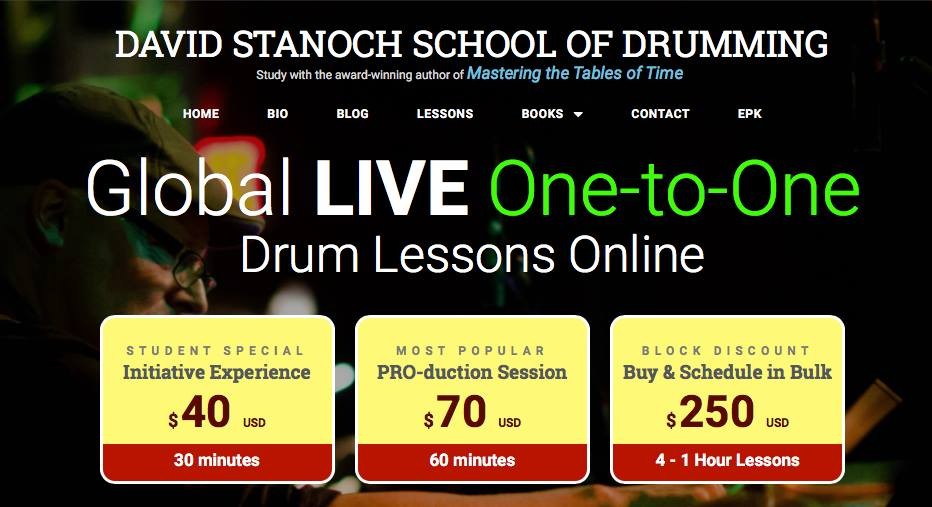
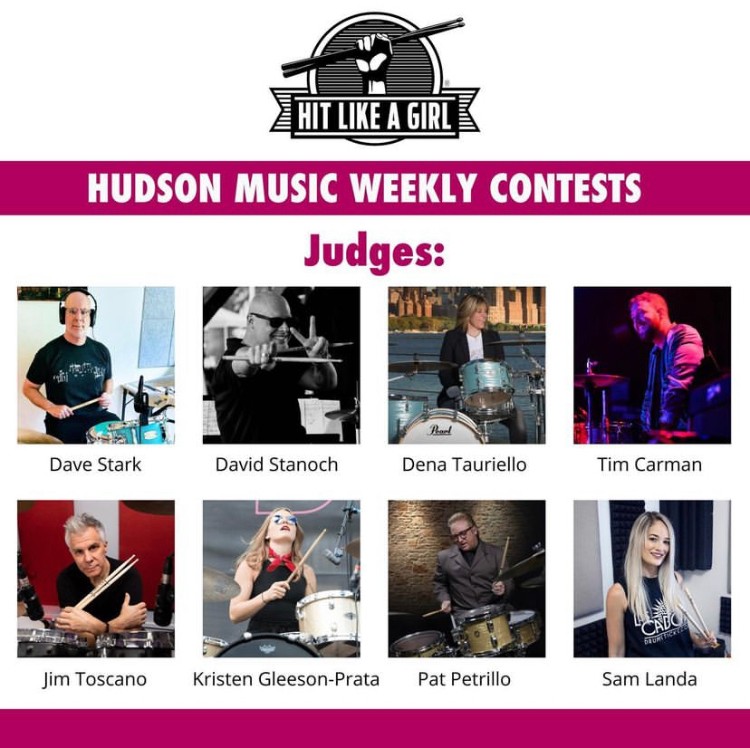
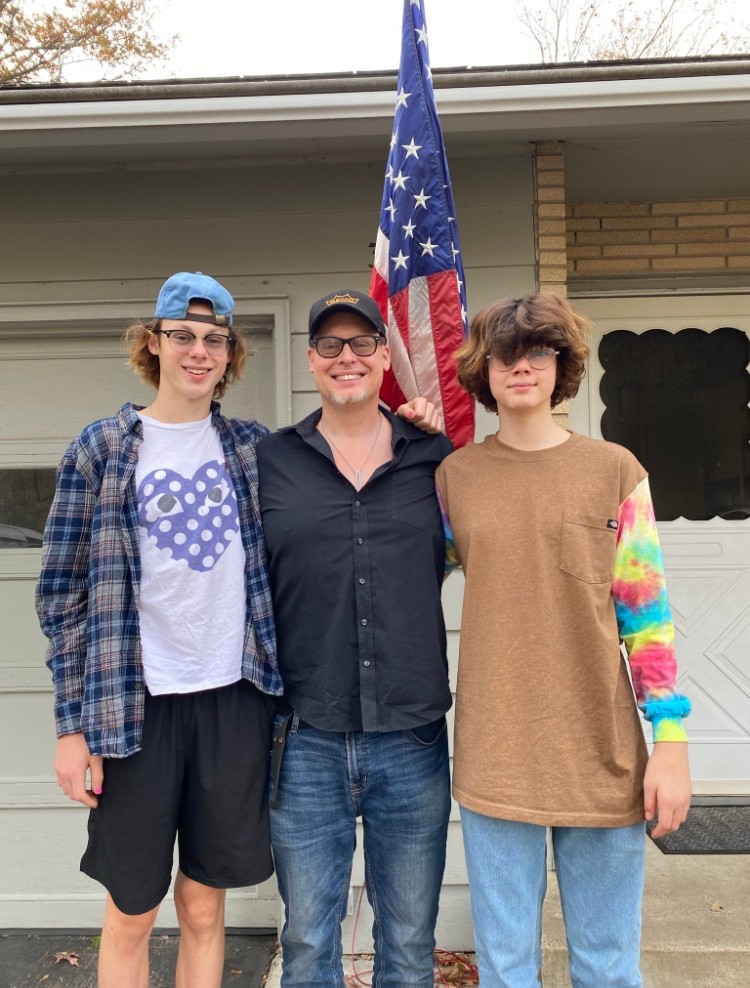
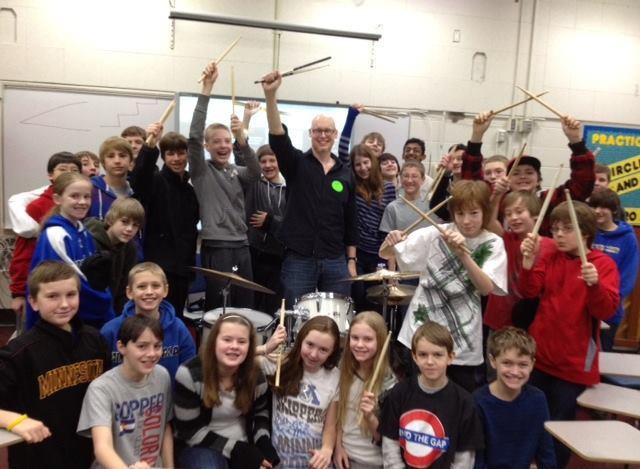
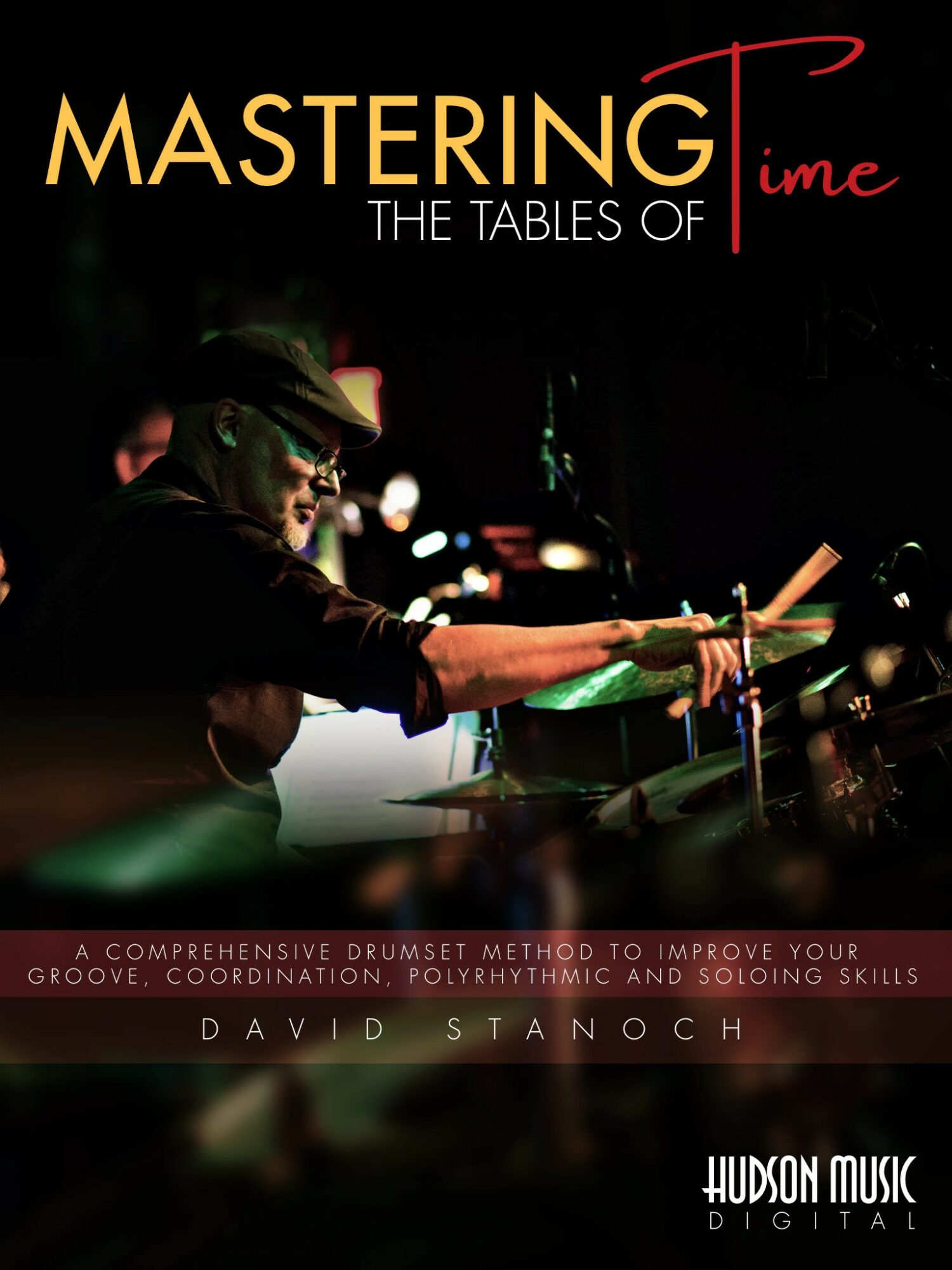
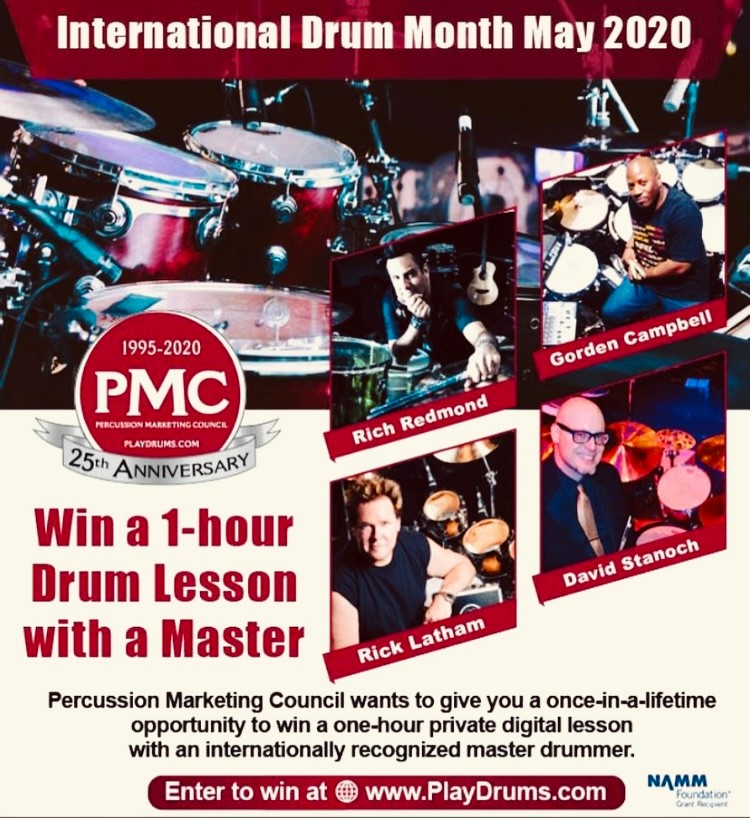
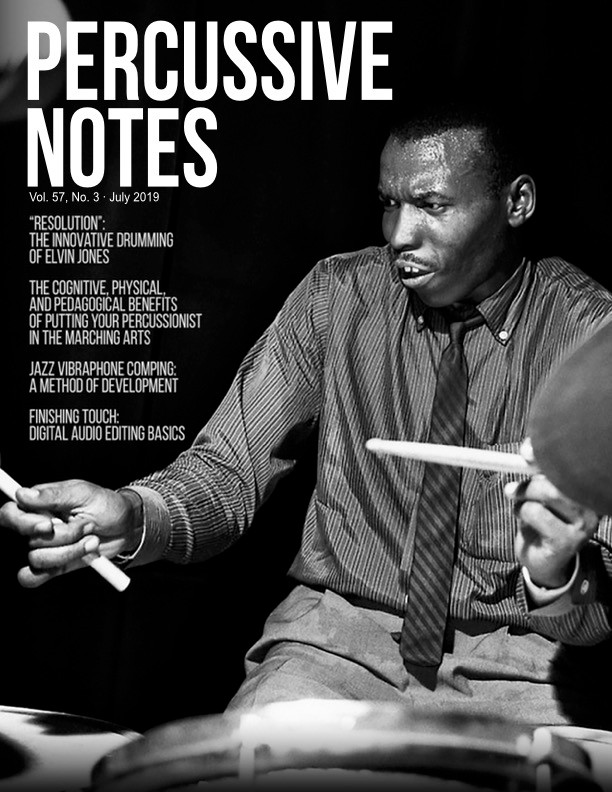
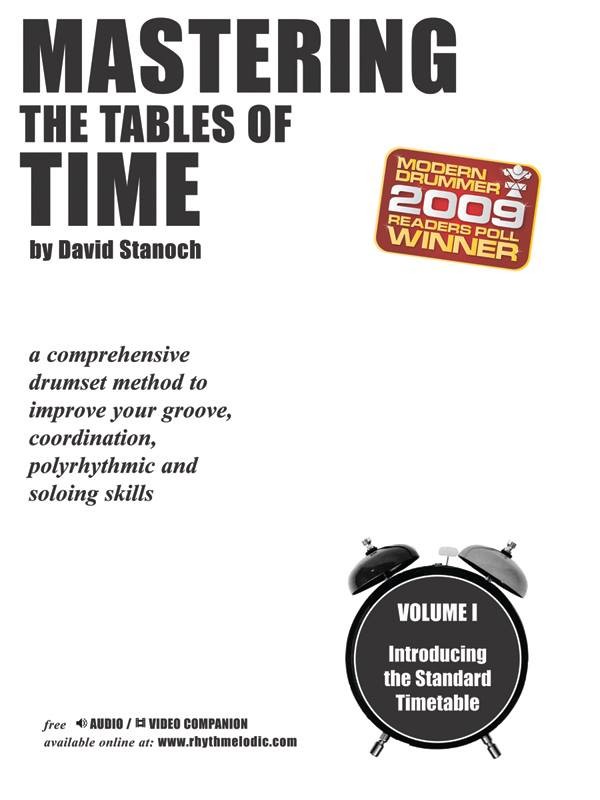
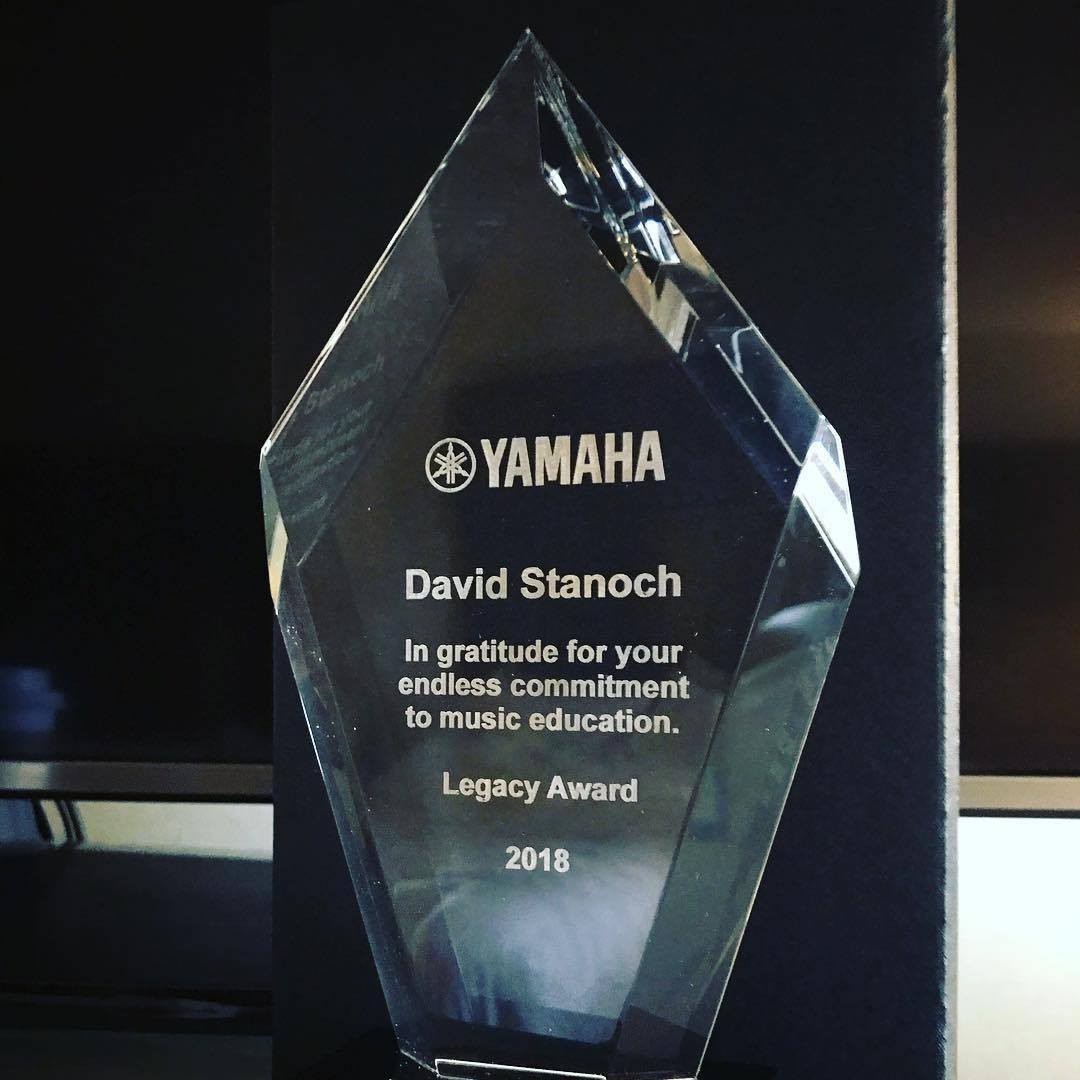
Image Credits
PBS
Alyssa
LouisDaddyDMax
MTKA East Jr High 2016











